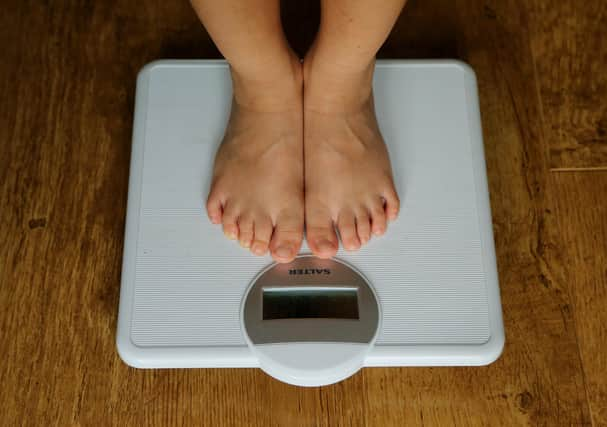NHS: Childhood obesity could cost health service "more than £8bn"


Obesity levels among children due to the pandemic could end up costing more than £8bn, research suggests.
A new study found obesity in England rose significantly among four to five-year-olds and those aged 10 to 11 between 2019/20 and 2020/21 – at the height of the spread of coronavirus. While more recent figures show a slight drop in obesity levels during primary school, the proportion of obese children aged 10 to 11 is still higher than before the pandemic.
Advertisement
Hide AdAdvertisement
Hide AdResearchers from the National Institute for Health and Care Research Southampton Biomedical Research Centre and the University of Southampton warned that costs are set to climb because overweight and obese children and teenagers tend to become obese adults. This includes money spent by the NHS on treating the complications of obesity, such as type 2 diabetes and heart disease, and the fact that obese people more often die early.
Writing in the journal PLOS One, the team said: "During 2020-2021 there were steep increases in overweight and obesity prevalence in children. By 2022, overweight and obesity prevalence in children aged four to five returned to expected levels based on pre-pandemic trends. However, overweight and obesity prevalence in children aged 10 to 11 persisted and was four percentage points higher than expected, representing almost 56,000 additional children.
"The additional lifelong healthcare cost in this cohort (both children aged four to five and 10 to 11) will amount to £800 million with a cost to society of £8.7bn."
NHS figures released in October showed the proportion of 10 and 11-year-olds who were overweight and obese has dropped slightly, but is not back to levels seen before the pandemic. Obesity levels in Year 6 in England fell from 23.4 per cent of pupils in 2021/22 to 22.7 per cent in 2022/23, but are still higher than the 2019/20 pre-pandemic level of 21 per cent.
Advertisement
Hide AdAdvertisement
Hide AdSplitting the data by gender, boys are more likely to be overweight than girls. Meanwhile, children living in the most deprived areas of England are twice as likely to be obese as those in the most affluent regions.
Researchers said "the majority of children were schooled from home, the cancellation of organised sports and recreational activities reduc(ed) physical activity, and there were effects on children’s sleeping schedules and screen time".
Professor Keith Godfrey, one of the study’s authors, from the Southampton Biomedical Research Centre, told the PA news agency that although obesity levels have dipped, the overall trajectory is still that obesity in older children is rising.
He said: "The Covid obesity rates [have] reverted to approximately pre-pandemic levels in the Reception age children but not in the older children, and we think that’s because the behaviours associated with increased rates of childhood obesity – so, reduced physical activity, poor diet and so on – become more embedded in the older children.
Advertisement
Hide AdAdvertisement
Hide Ad“Younger children reverted back to habitual diet, habitual levels of physical activity.”
He said no one measure will sort out childhood obesity but it needs to become a “national priority”. He also suggested that intervening when children are younger is likely to have the most effect.
Co-author, emeritus Professor Mark Hanson, from the University of Southampton, added: "Once established, obesity has proven to be difficult to reverse. Some 60 per cent to 85 per cent of children with obesity remain obese in adulthood, increasing their risks of future ill-health.
"Our finding of a rapid return to pre-pandemic levels of overweight and obesity in the youngest children suggests new policies should target under-fives. This is likely to be an effective means of tackling the growing problem of childhood obesity."
Comment Guidelines
National World encourages reader discussion on our stories. User feedback, insights and back-and-forth exchanges add a rich layer of context to reporting. Please review our Community Guidelines before commenting.
